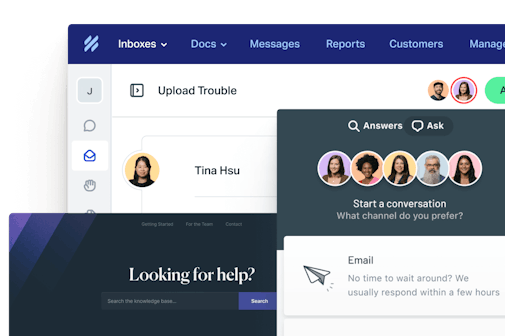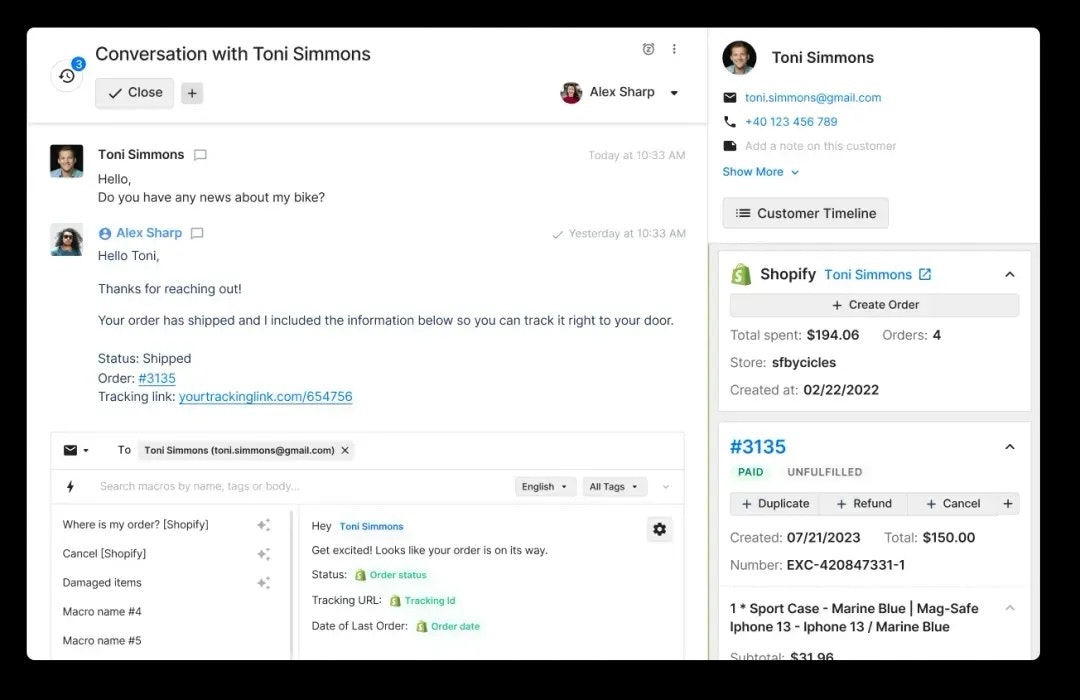We’ve all heard the phrase, “You can’t be all things to all people.” It’s sage wisdom and also why there’s no H&R Block TV that files your taxes while you binge the latest Netflix drama (but there could be…just saying). The truth of the matter is that there will always be room for competition because no one company can account for all aspects of a single product.
At Help Scout we strive to make the best help desk product possible. That said, we also recognize that in some cases we won’t be the exact right fit for a number of reasons. With that in mind, we’ve put together a list of nine Help Scout alternatives you should consider if you find that Help Scout isn’t the right fit for you.
What are the advantages of Help Scout?
Even though Help Scout may not be the right option in all cases, there are plenty of times where it is. Though there are a number of advantages, there are three we think are relevant to many teams:
Ease of use — Help Scout’s UI is incredibly intuitive, meaning teams can get up and running quickly. Most teams are able to set everything up in less than a day and agents can onboard quickly, becoming power users in a matter of weeks. If you happen to have any questions, there’s a robust library of help documentation you can access at your convenience. You also get access to our world-class support team members, who are always ready and willing to help out however they can.
Affordability — When you sign up for Help Scout you get access to a suite of tools to help with email, chat, and self service support at an accessible price point. There are also productivity features like AI Summarize and Assist for better, faster responses, collision detection to reduce duplicate work, and prebuilt analytics dashboards to help you better understand performance and gain insight to deliver even better customer experiences.
Support focus — We have one focus: helping you deliver consistently great experiences for your customers. Everything we do and the features we build are meant to serve that goal. Because of that mindset, we’ve created a tool that takes not just the customer experience into account but the agent experience, too.
If you want to learn even more about what Help Scout has to offer, you can find a full list of features and functionality here.
Help Scout FAQs
Is Help Scout a CRM tool?
Though Help Scout has some CRM capabilities, it isn’t a CRM. If you’re interested in learning more about CRMs, check out this article.
Is Help Scout free?
Yes, Help Scout offers a free plan. You can learn more about our current pricing here.
Is Help Scout a ticketing system?
Yes. When customers contact Help Scout users through email, chat, or Facebook Messenger, a ticket, or what we refer to as a conversation, is generated. Agents respond to the conversations through Help Scout and are able to track progress, update statues, add notes, and even share the conversations with others.
9 Help Scout alternatives
Even though Help Scout is a great solution for many teams, it won’t always be the best option. Below are some Help Scout competitors to consider based on price point and features.
| Help Scout alternatives: | Price: | Best for: |
|---|---|---|
Gmeluis | Starts at $15 per month | Email-only support |
Front | Starts at $19/user per month | Responding from a personal email address (sales/ account management focus) |
Kayako | Contact for pricing | Teams wanting an on-premise tool |
Zendesk | Starts at $19/agent per month | Teams supporting multiple products |
Zoho Desk | Free plan available. Paid plans start at $14/user per month | Teams wanting a free tool |
LiveAgent | Starts at $9/agent per month | Multi-lingual support |
SysAid | Contact for current pricing | Teams needing customer portals |
Gorgias | Starts at $10 per month | Low-volume teams |
Trengo | Starts at $18/user per month | SMS customer support |
1. Gmelius
Best Help Scout alternative for email-only support.
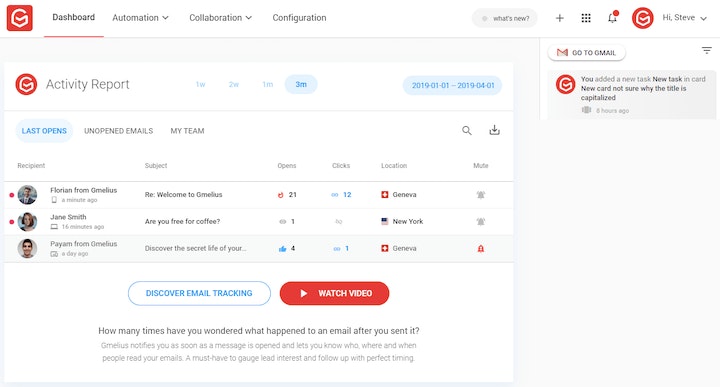
The best way to think of Gmelius is as a Gmail extension of sorts. It adds additional functionality to an existing Gmail account that lets support teams do things like assign conversations and add internal notes. You can also create templates to speed up responses and even automate some workflows.
Gmelius lets you tag conversations, which allows you to do things like create custom views to see emails by topic or assignee, both of which make managing incoming requests much simpler. Though Gmelius has lots of great features, it only supports email interactions. If you want to provide chat support or self-service content, you’d have to buy additional tools.
Price: Starts at $15 per month.
2. Front
Best Help Scout alternative for responding from a personal email address.

Similar to Help Scout, Front is a help desk solution that allows teams to respond to, organize, and manage customer requests. There are a lot of similar features between the two tools, but Front does have some features that make it unique. The primary one is the ability to respond from a personal email address.
Along with that capability, there’s also the ability to schedule meetings with customers directly from Front. However, they do lack some other more common features like a knowledge base builder (though they do mention it’s in the works). One other thing to pay attention to is that they have seat limits on their Starter plan. So, if you exceed those, you have to move up to a higher tier.
Price: Starts at $19/user per month.
3. Kayako
Best Help Scout alternative for teams wanting an on-premise solution.
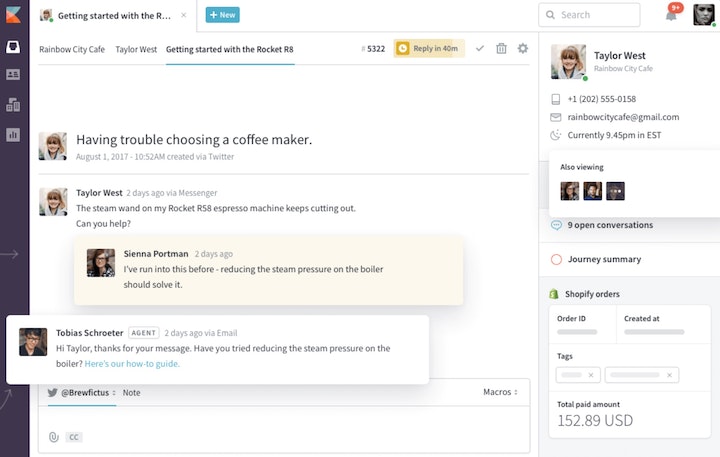
One of the biggest trends of the last decade or so in technology has been moving everything to the cloud. There are a lot of advantages to cloud-based solutions, which is what’s driven folks to embrace it. It’s also why almost all help desk solutions are cloud-based. However, in some instances, having software on-premise is what’s best. For those cases, Kayako is a great option.
Kayako offers an on-premise version on their software, which you can install on your own servers and essentially have complete control over access. It includes all the usual features like the ability to do email support, build a knowledge base, and so on. However, it is good to remember that on-premise tools do involve additional maintenance and implementation costs, so it might not be the right fit for smaller teams.
Price: Contact for current pricing.
4. Zendesk
Best Help Scout alternative for teams supporting multiple products.

Zendesk is one of the most recognizable names in help desk software. They offer a variety of features like omnichannel support, as well as more advanced features like AI assistants — though those types of features are limited to their highest cost plans.
However, one area where they stand out is the ability to create multiple distinct workspaces where agents can handle certain requests. For teams that provide support for multiple products, that can be a huge benefit as it helps keep things separate. The main thing to keep in mind is that Zendesk generally has a more intensive setup and onboarding process.
Price: Starts at $19/agent per month.
5. Zoho Desk
Best free Help Scout alternative.
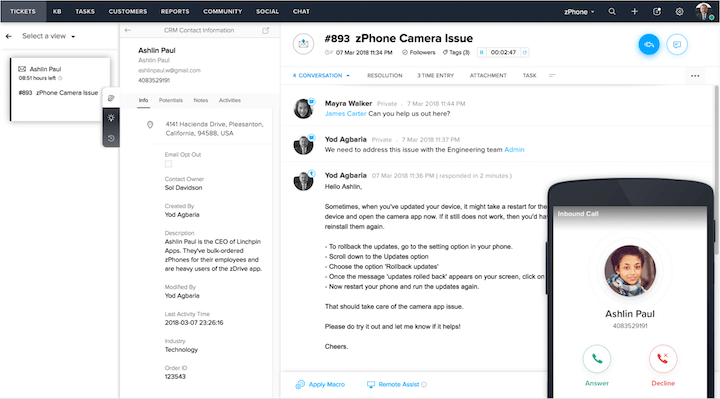
Many people know Zoho for their sales CRM, but they also offer a support product called Zoho Desk. It has a lot of the features you’d expect, like email support and a knowledge base builder to create self-service content for customers, both of which are included on their free plan.
They also offer some more advanced features like live chat capabilities and workflow automations for things like ticket routing. However, these aren’t offered on the free plan, which also has a three person limit. All that said, it is one of the most robust free offerings on the market currently.
Price: Free plan available. Paid plans start at $14/user per month.
6. LiveAgent
Best Help Scout alternative for multi-lingual support.
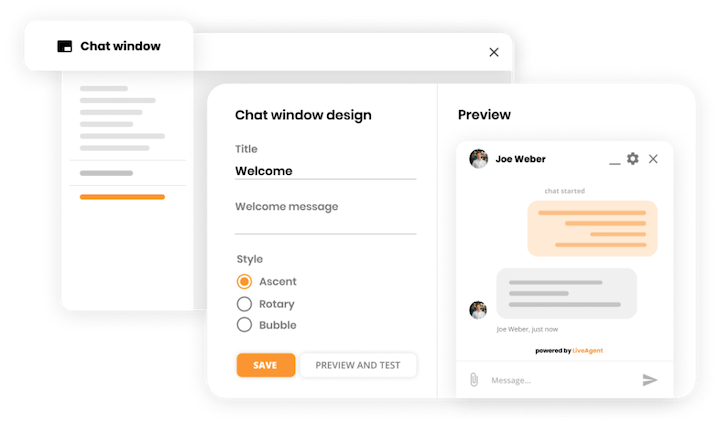
These days, having a global customer base is more common than ever. Providing support in someone’s local language is a big help in creating a great customer experience. LiveAgent currently offers translation support for 43 languages. It can also detect where someone is contacting you from and show them messages in their local language (as long as it’s one you choose to support).
Along with their multi-language feature, LiveAgent has some more standard help desk features like email and live chat support. You can also automatically assign tickets to different agents based on rules you set. However, those features are limited to their higher cost plans.
Price: Starts at $9/agent per month.
7. SysAid
Best Help Scout alternative for IT support.
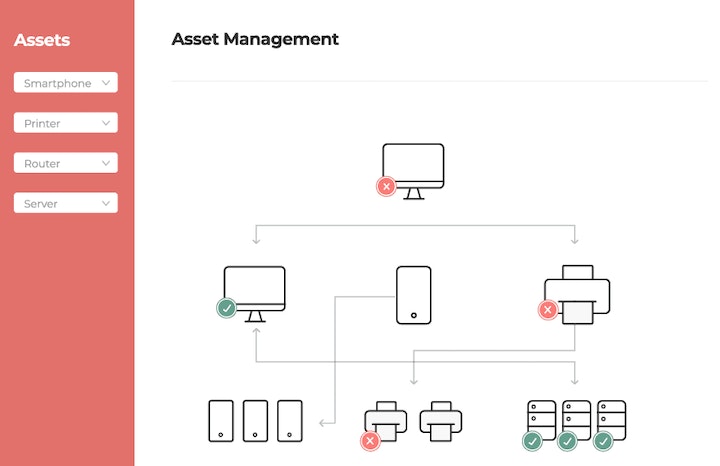
SysAid is a help desk product generally focused on IT teams. At its core, the product is a help desk with features to help with ticket and task automation to reduce strain on agents and give them more time to focus on requests. One of the big differentiators for SysAid is the ability to create custom customer portals where people can access specific documentation and make requests.
They also have a ITSM AI feature that further reduces ticket volumes for human agents and empowers customers to get answers quickly and on their schedule. However, it is important to note that those features are only offered on their higher tier plans.
Price: Contact for current pricing.
8. Gorgias
Best Help Scout alternative for low-volume teams.
Gorgias is a help desk product with an ecommerce focus. They have a number of standard features like live chat and email support capabilities. You’re also able to build a knowledge base with their software, and they include productivity features like automated workflows for assigning and tagging conversations, as well as the ability to create pre-written responses they call macros.
Along with the standard support features, Gorgias also includes access to different ecommerce integrations, but some are only available on their higher-cost plans. The final differentiator, and why Gorgias is best for lower-volume teams, is that they charge based on ticket volume. So, if you have very consistent volumes or lower volumes that fit in the allotted amount per plan, Gorgias could be one to look at.
Price: Starts at $10 per month.
9. Trengo
Best Help Scout alternative for teams using SMS.
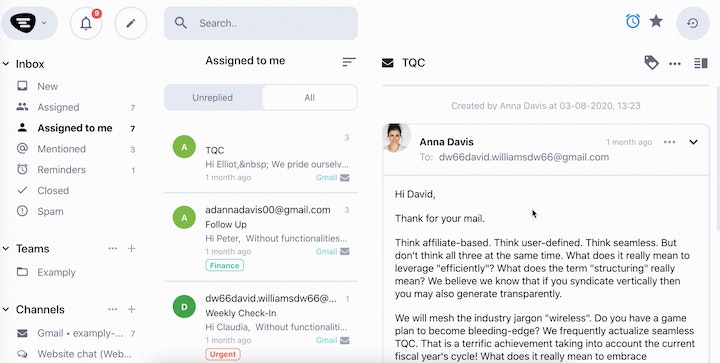
As support professionals know, customer requests can come from many places: email, phone, and social media sites to name a few. With Trengo you’re able to interact with customers from all those different channels. You also get access to other support features like the ability to build a knowledge base and view agent performance metrics — though analytics are only included on higher-cost plans.
The really standout feature for Trengo is the ability to communicate with customers through SMS messaging (text messaging). You can use it to send proactive messages for discount codes or to alert that an item is back in stock. You can also use SMS to handle customer requests, which can be very convenient for customers. However, as it is with other features, SMS support is limited to their higher-cost plans.
Price: Starts at $18/user per month.
Moving forward
Finding the right help desk for your team and its needs is certainly easier said than done. Take time to learn the options and have a clear understanding of what you and your team need in order to be successful and know what things are non-negotiable for you.
If you want a little more guidance for picking a support tool, check out our Buyer’s Guide to Choosing the Right Customer Support tool.



